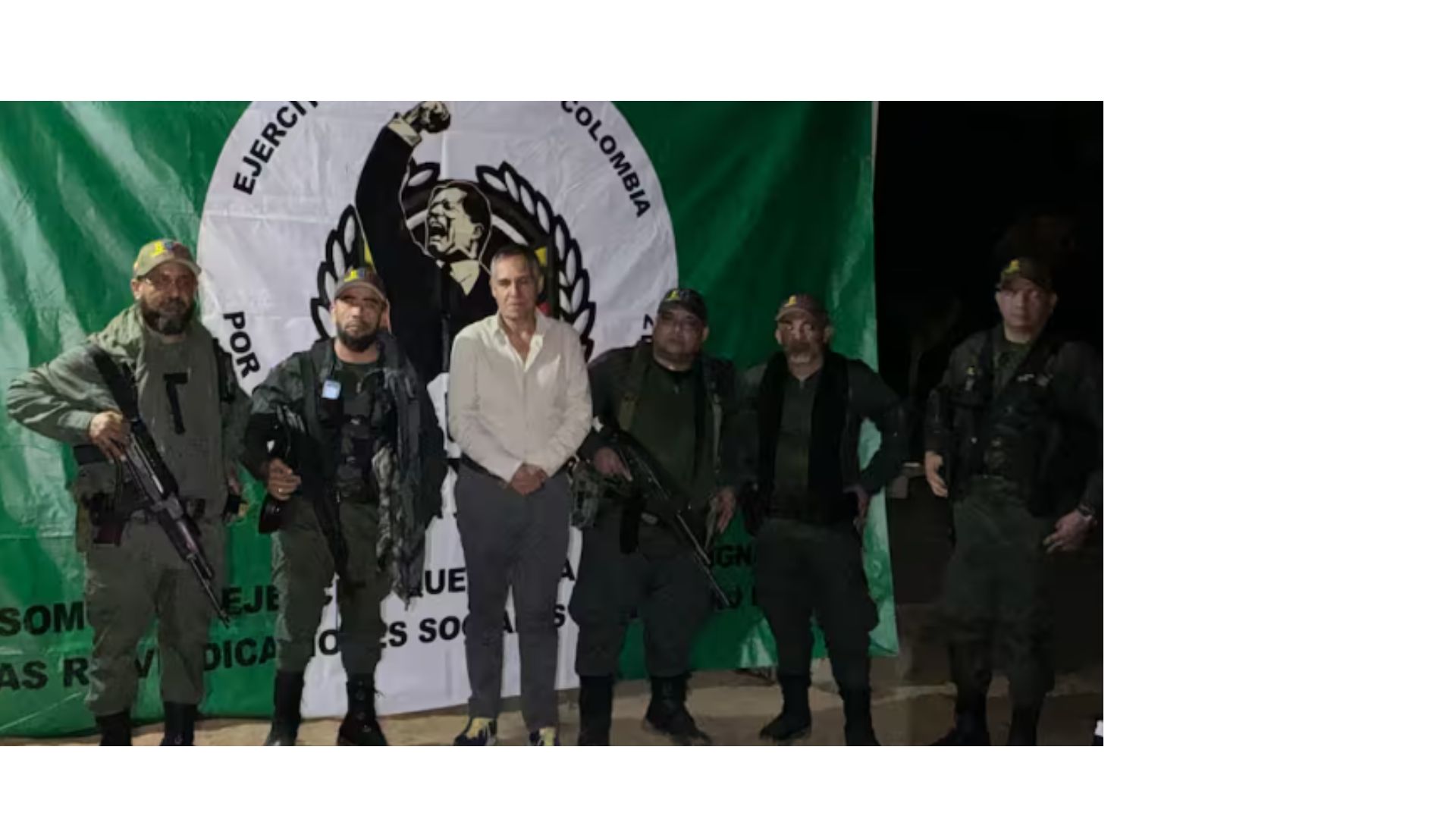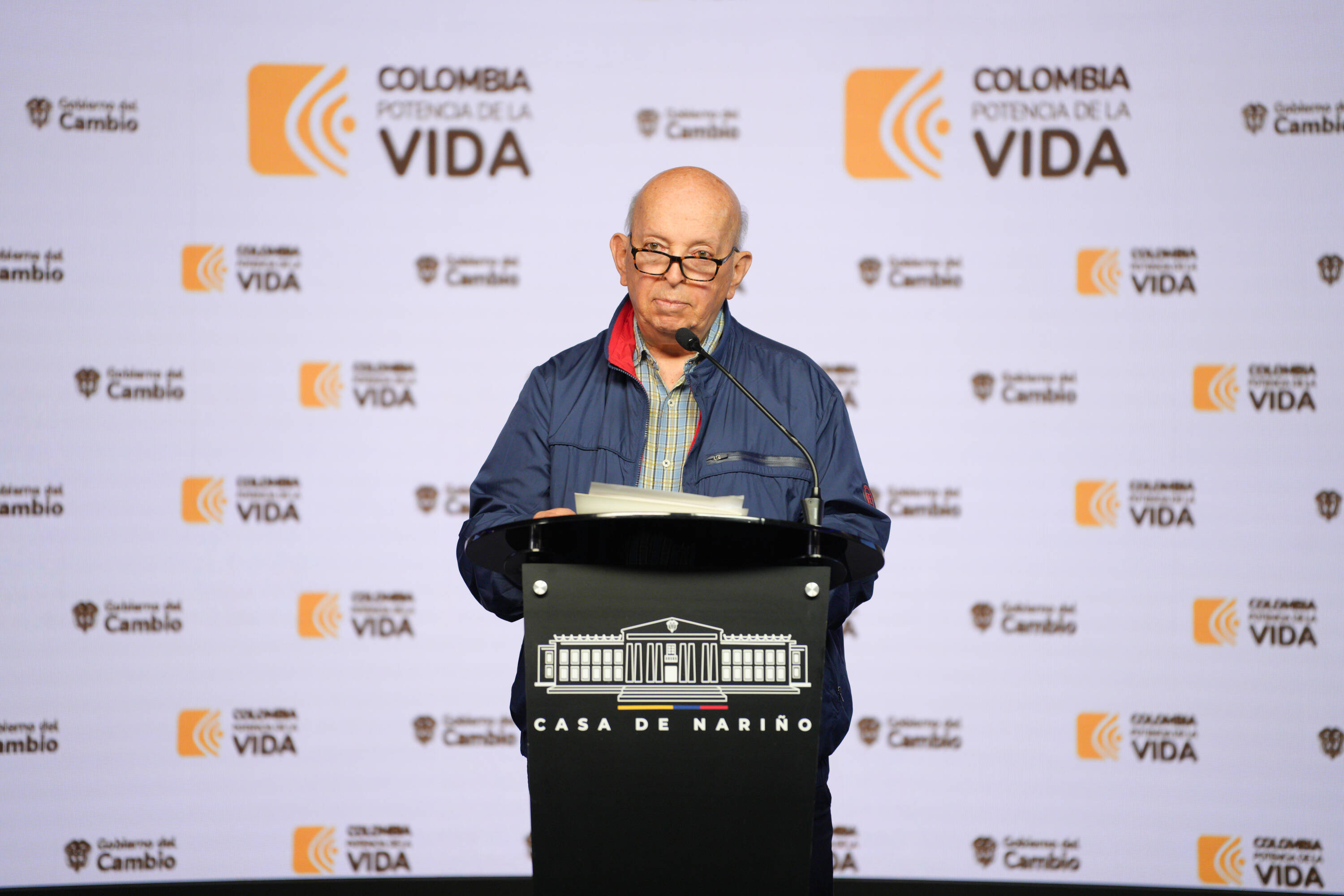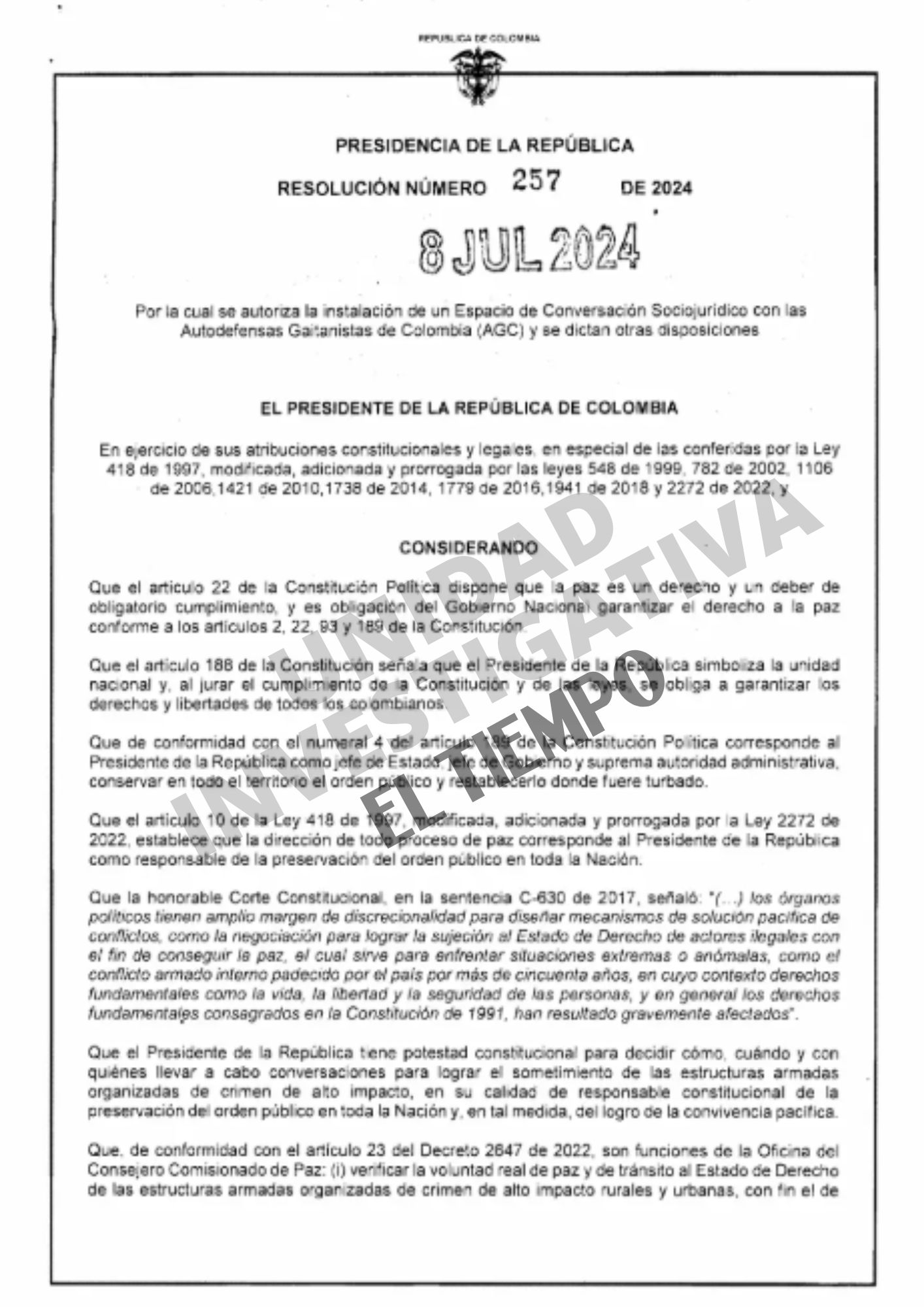The Petro administration recognizes the Gulf Clan as an Organized Armed Group (GAO) and opens the door to debate on its political status.

The government of Gustavo Petro recognized the "Gulf Clan" as an Organized Armed Group (GAO) and accepted its future identification as the "Gaitanista Army of Colombia." In doing so, it yielded to the long-standing demands of a criminal organization that, under various names—the Úsuga Clan, the Urabeños, and the Gaitanista Self-Defense Forces—has sought to cloak itself in a political aura to disguise its criminal nature.
Although the resolution does not grant them political status or halt operations against them, it does fuel the narrative with which the group attempts to legitimize itself and reopens the controversy over the risk of giving in to the narrative of an organization that plays a key role in the production and trafficking of cocaine and other illicit income.
In fact, the possibility of this happening was one of the reasons María Gaitán Valencia left the delegation that President Gustavo Petro appointed in August 2024, in preparation for the eventual installation of the roundtable.
From the beginning of the rapprochement phase, Jorge Eliécer Gaitán's granddaughter had opposed the official documents of the Office of the Peace Commissioner referring to the armed group as the "Gaitanista Army." "Submitting to this condition is an insult and an unacceptable message to Gaitanistas (...)" said the current director of the National Center for Historical Memory in her resignation letter in February of this year.

Álvaro Jiménez, government spokesman, alias Chiquito Malo (left). Photo: Private archive
Gerson Arias, a researcher at the IFJ, offers his own interpretation. He points out that this is a response to a long-standing request from the organization. "It is also a condition for advancing approaches and a possible negotiation table," he asserted.
But beyond the name, the debate revolves around the recategorization of the group and its implications. Before the new resolution, the "clan" was identified as an organized armed structure engaged in high-impact crime, as established in Resolution 257 of 2024, which authorized the establishment of a discussion forum.
According to Law 2272 ('total peace'), these are criminal organizations made up of "a plural number of people, organized in a hierarchical structure and/or network, who are dedicated to the permanent or continuous execution of punishable conduct, among which may be found those typified in the Palermo Convention, which are framed in criminal patterns that include the violent subjugation of the civilian population of the rural and urban territories in which they operate, and perform functions in one or more illicit economies."
For these types of structures, the law establishes approaches aimed at bringing them under scrutiny and dismantling them. In this sense, for any potential negotiations with this group to prosper, the approval of the submission law, submitted by Justice Minister Eduardo Montealegre to Congress on July 20, is essential.
With the resolution and the new name, the "Gulf Clan" is recognized as fitting the definition established by the law of "total peace": a group with responsible command and control over part of the territory that allows it to carry out sustained and concerted military operations. For this type of actors, the law contemplates political dialogues aimed at the signing of peace agreements, which raises the question of whether this change opens the door to negotiations under new conditions.
According to Professor Luis Fernando Trejos, a conflict researcher at the Universidad del Norte, this scenario could open the door for the government to eventually grant them some degree of political recognition.
"I wouldn't rule out that if this discussion moves forward and the government has evidence that the armed group has a real desire for peace, it might stake some of its political capital on some recognition in the form of political negotiations. Perhaps this is motivated by the failure of the government's major negotiating bet, which was with the ELN," he noted.

Otty Patiño, Commissioner for Peace since December 2023. Photo: Juan Diego Cano. Office of the President
It should not be forgotten that a heated debate already erupted when the ELN demanded, as a condition for extending the ceasefire with the government in August 2024, that President Petro issue a resolution removing them from the GAO list and granting them full political recognition, despite the fact that the Executive branch had already recognized them as an armed rebel organization in 2023.
"This is a consequence of the decisions of the High Court and the National Security Council, which at its most recent session in August resolved to classify the 'Gulf Clan' as an organized armed group. Given its level of operation and capacity for military initiative, it falls within the parameters of international humanitarian law, making it a legitimate target for combat and confrontation within the framework of IHL," Arias added.
Trejos, however, also raises another key implication of this change. "There is a recognition of a military capacity and territorial control, and that's why the state's capacity increases, so to speak, and the resources it would use to confront them increase," he stated.
The question becomes even more relevant considering that this situation has been ongoing since December 2024, when the Colombian Aerospace Force (FAC) bombed a "Gulf Clan" camp in Bajo Cauca, Antioquia, leaving four dead.
The regulatory vision has not always coincided with the military approach. In 2016, the Colombian Ministry of Defense issued Permanent Directive 015, a document that established two categories for classifying illegal armed groups: Organized Armed Groups (GAO)—defined similarly to how they appear in the "total peace" law—and Organized Criminal Groups (GDO), which are structured groups of three or more individuals acting in concert with the purpose of committing serious crimes, without necessarily having territorial control or a defined military structure.
This replaced the Bacrim designation that had prevailed until then. "Defining which Bacrim groups would be recognized as GAOs and which as Organized Criminal Groups (GDOs) was the responsibility of the Commanders' Agreement, whose decisions were presented to the National Security Council," Arias recalled, adding about the "clan": "Since that time, 2016, they have been combated within the framework of IHL."
What is the 'Gulf Clan' looking for? Intelligence reports and agencies monitoring the country's violence agree that the "Gulf Clan" is the criminal organization with the largest number of members and the largest territorial presence in the country.

The resolution that opened the door to this process with the EGC. Photo: EL TIEMPO
According to an intelligence report obtained by this newspaper, they have 2,675 armed men and 4,876 in support networks, a total of 7,551. This presence has been gaining ground in the north of the country, primarily in Chocó, the Magdalena Medio region, southern Bolívar, and the Atlantic coast. Furthermore, they have strengthened their control in Córdoba and Urabá, and are seeking to seize the Sierra Nevada de Santa Marta, where they are waging a war for control of the region with the Conquistadores de la Sierra Nevada Self-Defense Forces (ACSN).
Furthermore, the Ideas for Peace Foundation, in its publication Thus arrives the Gulf Clan to a new attempt at peace talks, now in Qatar , warns that the 'Gulf Clan' not only maintains a solid network of informants and a criminal portfolio that includes illegal gold mining, extortion, money laundering and control of migratory flows through Darien, but has also begun to act under the logic of international humanitarian law: it seeks to be considered part of a "non-international armed conflict" and not simply as a common criminal gang.
For Trejos, there are three objectives behind this new dynamic. “The first is to ensure that there are no extraditions; the second is to access transitional justice scenarios; and the third is to retain some of the wealth or assets accumulated during his armed career,” he noted.
For now, it is known that Álvaro Jiménez is conducting exploratory talks in Qatar and that the establishment of the roundtable appears imminent.
CAMILO A. CASTILLOPolitical EditorX: (@camiloandres894)
eltiempo




